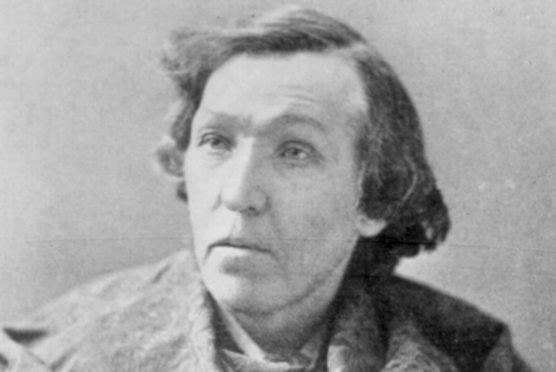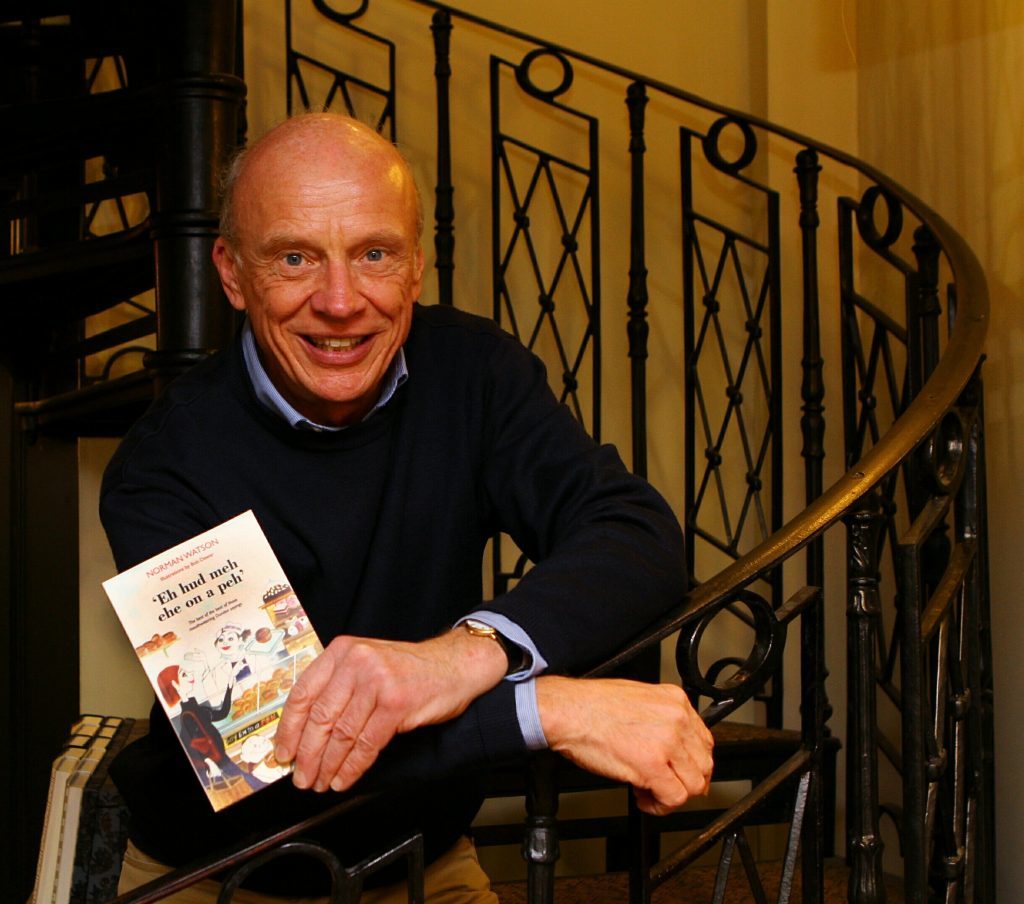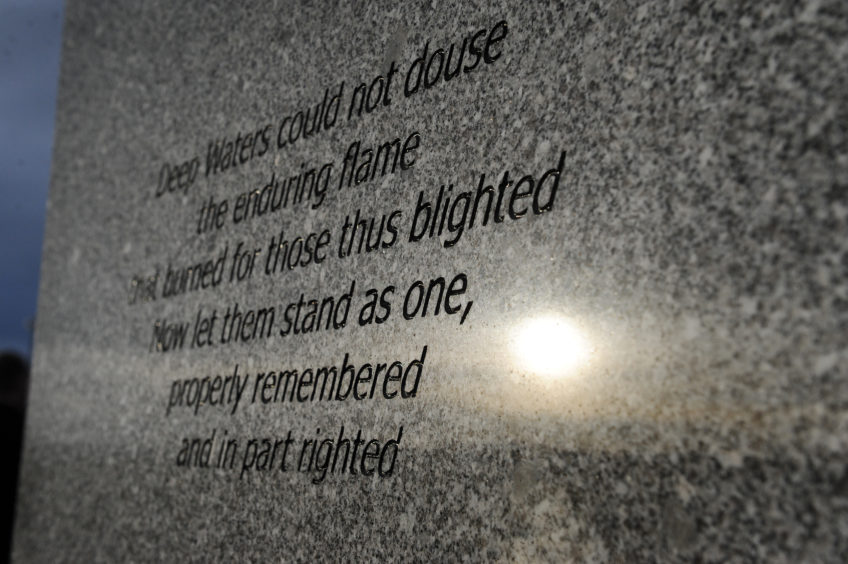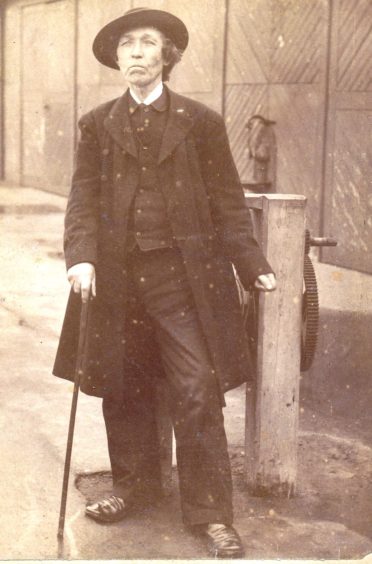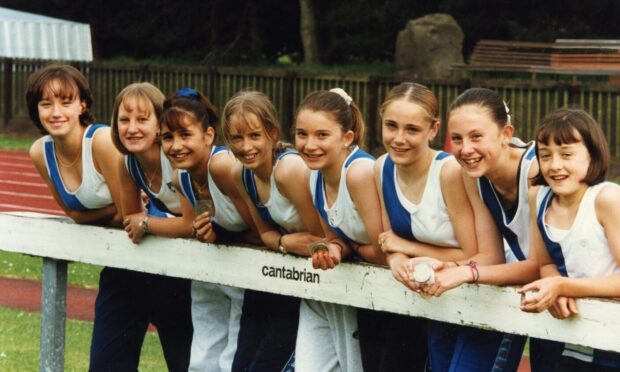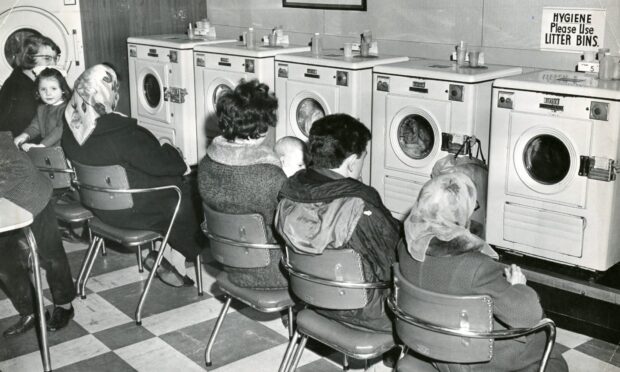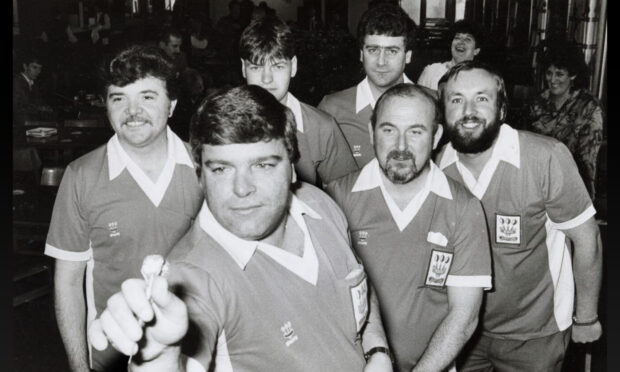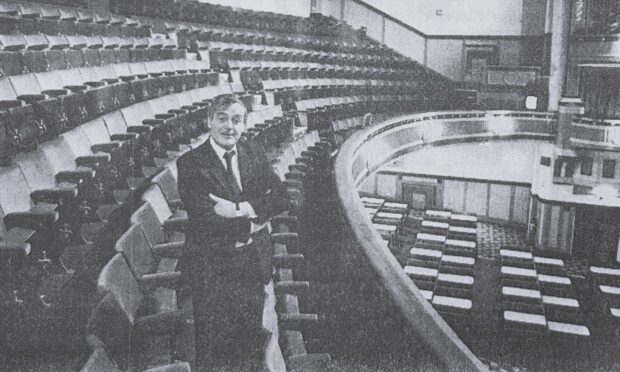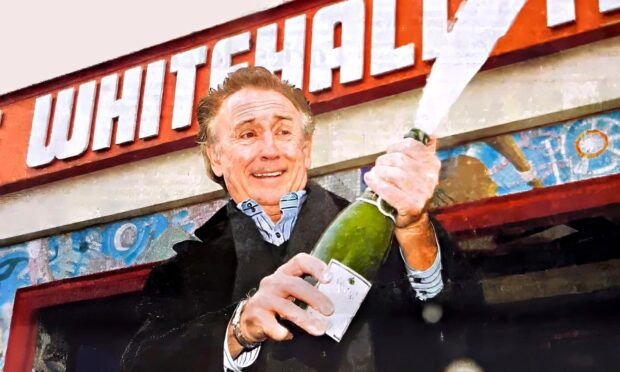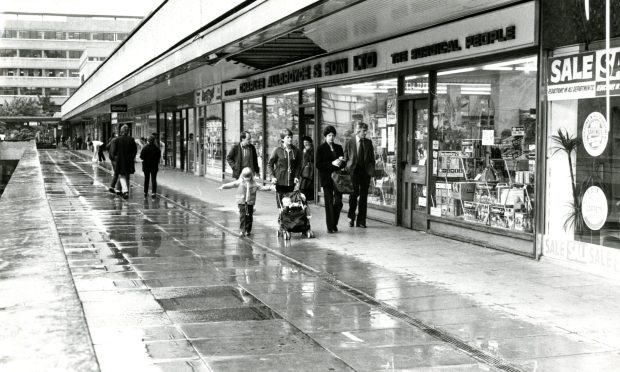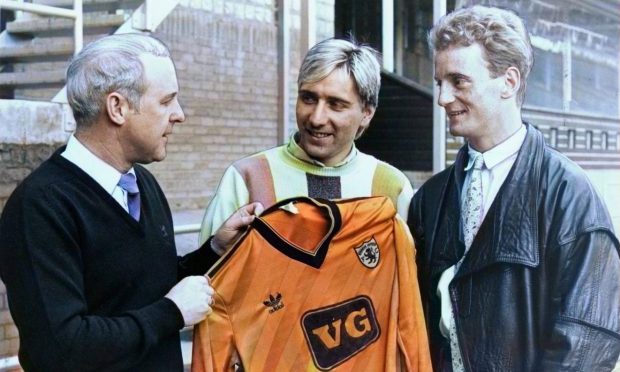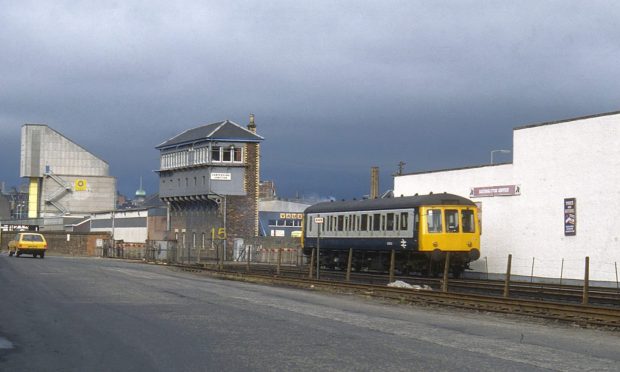It was the day the world’s worst poet turned his back on Dundee to seek fame and fortune in London.
William McGonagall was a Dundee carpet weaver with a side line in terrible verse who carried an umbrella to protect himself from rotten fruit thrown at him by strangers.
The Poet Laureate of Paton’s Lane gave a farewell address at the Argyle Hall 140 years ago to his “fellow citizens of Dundee” including “all my enemies that want to mock me when passing by”.
He said he would never forget those who had rallied around him during his time in Dundee and spoke of his hope that if he ever returned it would be “with the laurels of fame”.
McGonagall’s dreams of stardom soon evaporated when he was snubbed by an internationally-famous Shakespearean actor and the only role he was offered was to form a duo with a busker who played a tin whistle.
Dr Norman Watson, the poet’s biographer, said: “McGonagall would be tickled pink to know he has stirred up this attention, and first to Google his own name to see The Courier’s latest coverage of his ‘Beautiful’ this or that, or ‘Twas on’ such-and-such a date, or ‘All hail to’ so-and-so verses.
“Celebrated by Goons, Pythons, Muppets, Milligan, Sellers, Rowling, Pullman and Pratchett, as well as by societies, dinners, plaques, portraits, books (ahem!) and websites, no other Dundonian has enjoyed such fame and acclaim.
“Seldom a day passes when his poems aren’t celebrated somewhere in relation to awfulness.”
McGonagall’s poetry offered a meticulous chronicle of the times in which he lived and he was instrumental in conveying local and national news to folk with limited literacy skills and less awareness of the world around them.
In doing so, he unwittingly became a poet of the streets, passing on the who-what-when-where-how bread and butter of journalism with a storyteller’s instinct.
The Tay Bridge Disaster, perhaps McGonagall’s most famous work, was also written in 1880.
In it, he recounts the story of the bridge collapse which resulted in the deaths of around 75 people.
Dr Watson said McGonagall had been sent a fiver by the great Victorian actor Henry Irving and used it to travel down south.
He said: “His enduring appeal was most beautiful to be seen on his trip to London in 1880.
“He penned a poem announcing his impending departure – ‘Farewell! Farewell! to the bonnie banks o’ the Silvery Tay’ – eked out to half a dozen verses, and boisterous crowds turned up to see him off.
“He left with his pocket light but his head buzzing with possibilities.
“The object was to impart his literary and dramatic skills to appreciative new audiences, but when he turned to the serious business of touring theatres and music halls in the hope of securing a booking, it was one cold shoulder after another.
“Not given to busking, McGonagall’s thoughts turned to his benefactor, Henry Irving.
“He trudged to the Lyceum and asked if Irving was in.
“The porter informed him that Mr Irving would not speak to a person like him and showed him the door.”
McGonagall retorted that he was as good a man as Henry Irving who was an internationally-famous Shakespearean actor.
Illustration of the Day: Henry Irving as Mephistopheles in a version of Goethe’s Faust (1885)
“In Boston where the old puritanical belief of a real devil still holds we took $852 – the largest dramatic house up to then known in America.”
– Bram Stoker, Irving’s business manager pic.twitter.com/XGoITeQ9WJ— Adam B (@adambcqx) February 9, 2020
At every turn he was given the cold shoulder and the only offer he got was from a fellow-lodger who earned an honest penny by playing a tin whistle on the streets.
This young man proposed he and McGonagall should enter into partnership and take to the streets to perform together.
Dr Watson said: “McGonagall’s autobiographies devote few words to his London trip, other than: ‘Unfortunately, I didn’t succeed. Owing to the disappointments I met with, I resolved to return home to Dundee as soon as possible… I was glad to see it, especially my family’.
“He had been scarcely absent a week from long-suffering wife Jean and the kid.
“He returned with his tail firmly between his legs, wiser if not wealthier, his dreams scattered to the four winds, his gas at a peep.
“Our souvenir is the 11-verse Jottings of London, which reflects like a postcard the exceptional opportunity for a working-class Dundonian to spend a leisured week in the capital.
“A sample stanza on a prominent (ahem, again!) statue…”
The poem reads:
And as for Nelson’s Monument
That stands in Trafalgar Square –
It is a most stately statue
I most solemnly declare,
And towering very high,
Which arrests strangers’ attention
When they are passing by.
And there’s two beautiful water fountains
Spouting up very high,
Where the weary travellers can have a drink
When they feel dry.
Dr Watson said: “On his return, an evening’s entertainment was arranged by a few friends for the long-demolished Marine Hall in the long-gone Marina Place in the much-changed Hawkhill. They had learned that McGonagall ‘was sadly dejected, and sunk in purse and spirits after his luckless tour’, and had banded together to organise a fundraiser to console the poor poet.
“The chairman introduced McGonagall and provided a graphic account of his London experiences to much sympathetic ‘ooohhhing’ and ‘aaahhhing’. He reassured the audience that the poet, after undergoing a series of hardships and miseries enough to crush the life out of any ordinary mortal, was still ‘alive and kicking’.”
To this, added Dr Watson proudly: “there were cheers and prolonged applause”.
By 1893, he was annoyed by his mistreatment in the streets and wrote an angry poem threatening to leave Dundee.
Famously he received a letter in 1894 purportedly from the King of Burma and the Andaman Islands informing him that he had been knighted as ‘Topaz McGonagall, Grand Knight of the Holy Order of the White Elephant Burmah’.
Despite it being a fairly obvious hoax, McGonagall referred to himself as William Topaz McGonagall, Knight of the White Elephant, Burmah, in his advertising up until his death in 1902.
He died in poverty and was buried in a pauper’s grave in Greyfriars Kirkyard.
The cause of his death was attributed to ‘cerebral haemorrhage’.
#cycletouring through #Edinburgh called Greyfriars Graveyard. Good to see the grave of Poet William McGonagall on tourist route @ImcMillan pic.twitter.com/O45kMdEYfj
— Boyd Harris (@whittlewanderer) April 25, 2018
A grave-slab installed to his memory in 1999 is inscribed:
“I am your gracious Majesty
ever faithful to Thee,
William McGonagall, the Poor Poet,
That lives in Dundee.”
Farewell Address at the Argyle Hall
Tuesday, June 22, 1880
Fellow Citizens of Dundee.
I now must bid farewell to ye.
For I am going to London far away.
But when I will return again I cannot say.
Farewell! Farewell! to the bonnie banks o’ the Silvery Tay.
Also the beautiful Hill o’ Balgay.
And the ill fated Bridge o’ the Silvery Tay.
Which I will remember when I am far away.
Farewell! to my friends and, patrons all.
That rallied around me in the Music Hall.
And those that has rallied around me to night,
I shall not forget when out of sight.
And, if I ever return to Dundee again,
I hope it will be with the laurels of fame.
Plac’d on my brow by dame fortune that fickle Jade.
And, to Court her favour I am not afraid.
Farewell! to every one in the Argyle Hall.
That has Come to hear McGonagall.
Recite, and sing, his Songs to night.
Which I hope will long be remember’d when I’m out of sight.
Adieu to all my enemies that want to mock me when passing by.
But I excuse them for their ignorance and leave them to the most high.
And, once again, my friends, and enemies. I bid ye all good bye.
And when I am gone ye will for me heave a sigh :-
I return my thanks to my Chairman and my Committee,
For the Kindness they have always shown to me.
I hope the Lord! will protect them when I am far away.
And prosper them in all their undertakings by night and by day.
